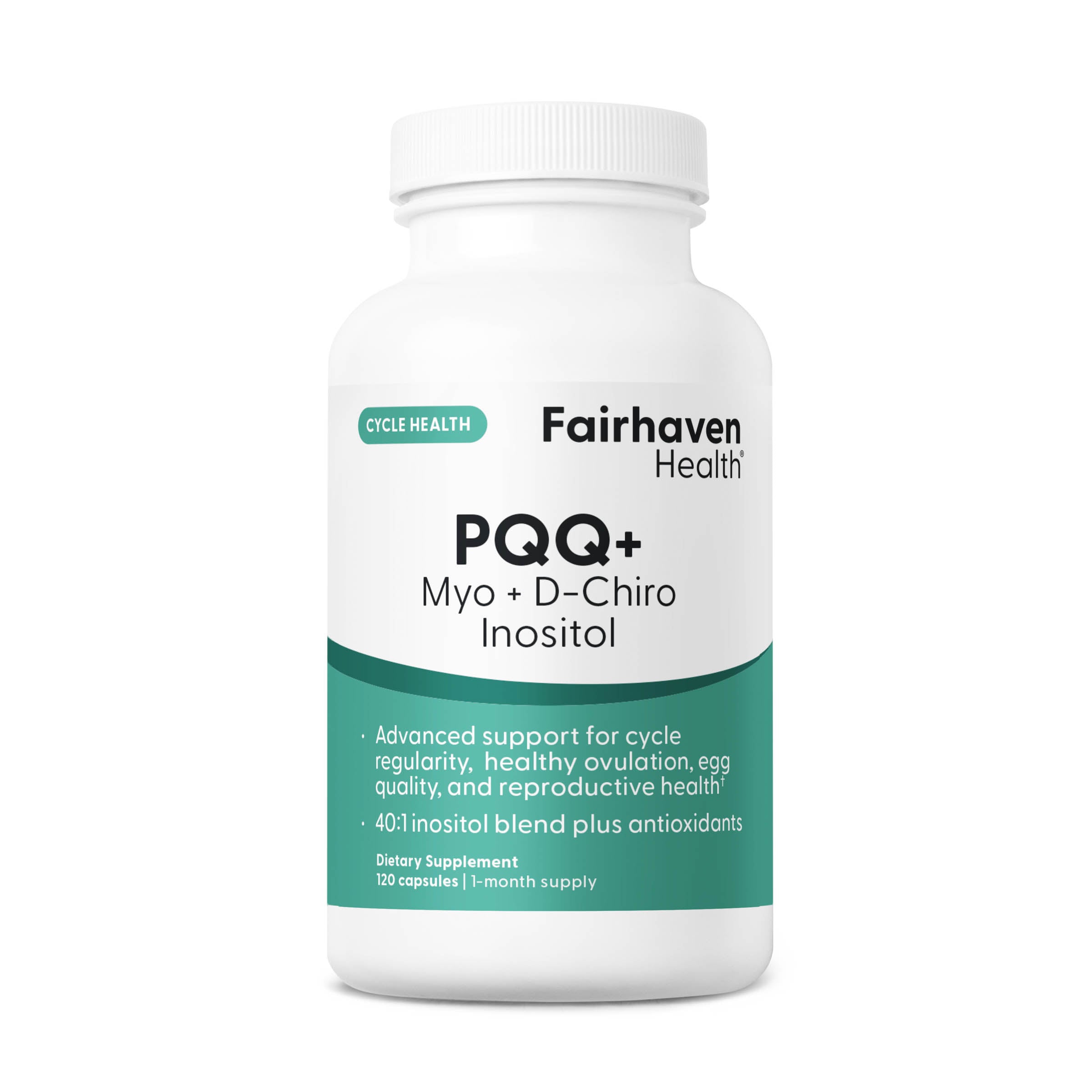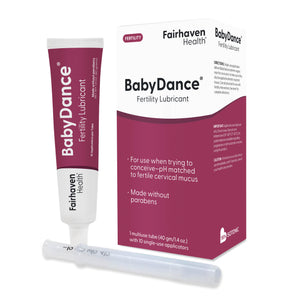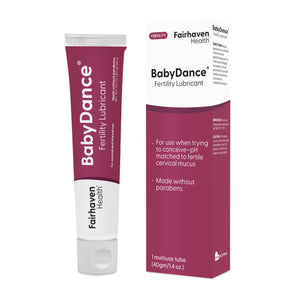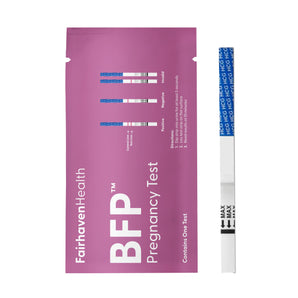By Chris D. Meletis, N.D.
There are a lot of possible causes of suboptimal fertility. But a lot of the evidence is now pointing to exposure to environmental toxins as playing an important role. In this article, I will present the case of an man with poor sperm health who was likely exposed to environmental pollutants. This case study will show how taking an antioxidant-based male fertility supplement resulted in improved sperm health, even though the patient refused to change his lifestyle to reduce toxin exposure.
The Link Between Male Fertility and Environmental Toxins
There’s a lot of evidence pointing to the association between sperm abnormalities and exposure to phthalates, chemicals found in plastic food containers, medical equipment like IV tubing, shampoos, deodorants and other personal care products, and many other sources. Research found a link between semen phthalate metabolites and a decrease in semen volume, poor sperm motility (an indication of how well sperm move to fertilize an egg), and an increase in abnormal sperm heads and tails.1
In an earlier study, higher urinary levels of phthalates were associated with declines in sperm levels and total sperm count.2 In addition, higher urinary levels of phthalates were linked to a greater number of abnormal sperm heads.2 In other studies, higher urinary phthalate levels were connected to lower sperm concentrations.3,4 What’s more, phthalates can change a process known as DNA methylation.5 Methylation acts like a switch that turns genes on and off. This means phthalates can damage both current and future generations.
Benzene is another chemical that spells trouble for male fertility. It’s difficult to get away from benzene. It’s in cigarette smoke, gasoline fumes, and vehicle emissions. In men exposed to benzene at work, total sperm count and sperm motility declined and the abnormality of sperm form increased.6 In another study of men exposed to benzene at work, there was increased incidence of chromosomally defective sperm.7 Other research found problems in the sperm of men who were exposed to ethylbenzene, benzene, toluene, and xylene at work, compared to men who were not exposed to these toxins.8 For example, men exposed to the chemicals had reduced sperm count, sperm motility, and the proportion of sperm with normal form.8
Having Problems Conceiving
A 33-year-old male construction worker arrived at my practice. He performed physical labor at his job five to six days per week, but was 40 pounds overweight. He continued to eat the standard American diet filled with processed and refined foods and sugar and drank one to two alcoholic beverages nightly. He enjoyed fishing from a nearby river and eating the freshly caught fish.
He and his wife had a four-year-old child but were having a hard time getting pregnant with a second child. I explained to the couple about toxins that disrupt healthy hormone levels and may affect male and female fertility. His wife was willing to change her lifestyle and to take a more wholistic approach to conception, but her husband was reluctant to do so. He did not want to change his unhealthy diet, which may have exposed him to toxins which negatively impact fertility. This type of diet also was likely causing him to put on the extra pounds, which in itself is a risk factor for reduced fertility.9 He complained of being too tired to exercise or pursue fitness beyond that which he received in his job.
Unearthing the Likely Cause of the Problem
I ordered a type of test known as an organic acids profile with an environmental pollutant panel (US BioTek) to find out whether environmental toxins were a likely culprit. The husband’s results showed he had high levels of the toxins toluene and benzene. A sperm analysis found he had low sperm levels and reduced sperm motility.
Enter an Effective Male Fertility Supplement
I would normally put patients who tested high in environmental pollutants on a detoxification program to help the liver remove the toxins. However, this man wasn’t willing to start a complete detox program. There were only two of my recommendations he was willing to do. First, he began supplementing with magnesium citrate to increase his bowel movements from once every two to three days to two times per day. Bowel movements help the liver expel toxins from the body.
Second, he was willing to take a dietary supplement designed to support male fertility. This supplement includes 27 ingredients to support healthy sperm count, motility, sperm form, and DNA integrity by protecting sperm from the damaging effects of oxidative stress. It includes powerful antioxidants such as beta-carotene, vitamin C, Quatrefolic®, natural vitamin E, zinc, selenium, L-carnitine, grape seed extract, CoQ10, lycopene, and N-acetyl-cysteine.
Zinc improves sperm motility and protects sperm from DNA breakage.10 Selenium and vitamin E also enhance sperm motility and sperm form.11 Supplementation of these nutrients to infertile men has led to an increased rate of spontaneous pregnancy in their partners.11 L-carnitine increases sperm motility and sperm count12 and boosts spontaneous pregnancy rates in partners of men with low sperm count.13 Arginine is included because it increases nitric oxide, which in turn increases sperm quality and motility and erectile function.14
Studies have shown the ingredients in the formula work together to boost fertility. In one study, CoQ10 together with vitamin C and vitamin E, resulted in significantly improved sperm counts and motility.15 CoQ10 together with the vitamins increased conception rate.15 In 20 infertile males, L-carnitine, vitamin C, CoQ10, vitamin E, vitamin B9, vitamin B12, zinc, and selenium daily for three months16 was associated with a 22.1% decline in sperm DNA damage and an increase in total number of sperm cells.
Some of these nutrients are also required to support liver detoxification. The liver uses B vitamins, folic acid, vitamins E and C to expel toxins. In addition, environmental toxins lead to an excessive amount of a potentially damaging process known as oxidative stress. The antioxidants in the formula can protect the body and reproductive organs from this stress.
The Happy News
Seven months after starting the dietary supplement and taking it daily, the man had another semen analysis, which showed considerable improvements in his sperm health. His sperm levels increased from 9 million/mL before supplementation to 58 million/mL after supplementation. Sperm motility rose from 42% to 68% after supplementation. The number of sperm with healthy form—known as sperm morphology—improved from 5% to 10%. Semen volume increased from 2 mL to 3.4 mL after supplementation with the male fertility supplement. His wife became pregnant nine months after he started taking the supplement.
Using Antioxidants to Increase Fertility
This case study shows how an antioxidant-based dietary supplement can boost fertility. The success of the supplement may have been due to its antioxidant effects and its ability to protect against environmental toxins that damage sperm.
Dr. Chris Meletis
 Dr. Chris Meletis is an educator, international author and lecturer. His personal mission is “Changing World’s Health One Person at a Time.” Dr Meletis has authored 18 books and over 200 national scientific articles in journals including Natural Health, Alternative and Complementary Therapies, Townsend Letter for Doctors and Patients, Life Extension, Natural Pharmacy, and PubMed.gov articles.
Dr. Chris Meletis is an educator, international author and lecturer. His personal mission is “Changing World’s Health One Person at a Time.” Dr Meletis has authored 18 books and over 200 national scientific articles in journals including Natural Health, Alternative and Complementary Therapies, Townsend Letter for Doctors and Patients, Life Extension, Natural Pharmacy, and PubMed.gov articles.
Dr. Meletis served as Dean of Naturopathic Medicine and Chief Medical Officer for 7 years for the National College of Naturopathic Medicine (now the National University of Natural Medicine). He was awarded the 2003 Physician of the Year by the American Association of Naturopathic Physician of the Year by the American Association of Naturopathic Physicians. He has a deep passion for helping the underprivileged and spearheaded the creation of 16 free natural medicine healthcare clinics in the Portland metropolitan area of Oregon.
References:
- Wang YX, et al. Semenphthalate metabolites, semen quality parameters and serumreproductive hormones: A cross-sectional study in China. Environ Pollut. 2016 Apr;211:173-82.
- Wang YX, et al. Phthalate exposure in association with serum hormone levels, sperm DNA damage and spermatozoa apoptosis: Across-sectional study in China. Environ Res. 2016 Oct;150:557-65.
- Kranvogl R, et al. Simultaneousdetermination of phthalates, their metabolites, alkylphenols and bisphenol A using GC-MS in urine of men with fertility problems. Acta Chim Slov. 2014;61(1):110-20.
- Pan Y, et al. Associationsof urinary 5-methyl-2'-deoxycytidine and 5-hydroxymethyl-2'-deoxycytidine with phthalate exposure and semen quality in 562 Chinese adultmen. Environ Int. 2016 Sep;94:583-90.
- Moody L, et al. Perinatal phthalate and high-fat diet exposure induce sex-specific changes in adipocyte size and DNA methylation. J Nutr Biochem. 2019 Mar;65:15-25.
- Katukam V, et al. Effect ofbenzene exposure on fertility of male workers employed in bulk drug industries. Genet Test Mol Biomarkers. 2012 Jun;16(6):592-7.
- Marchetti F, et al. Occupational exposure tobenzene and chromosomal structural aberrations in the sperm of Chinese men. Environ Health Perspect. 2012 Feb;120(2):229-34.
- De Celis R, et al. Semen quality of workers occupationally exposed to hydrocarbons. Fertil Steril. 2000 Feb;73(2):221-8.
- Škurla M, Rybář R. Obesity and reduced fertility of men. Ceska Gynekol. Winter 2018;83(3):212-7.
- Omu AE, et al. Indications of the mechanisms involved in improved sperm parameters by zinc therapy. Med Princ Pract. 2008;17(2):108-16.
- Moslemi MK, Tavanbakhsh S. Selenium-vitamin E supplementation in infertile men: effects on semen parameters and pregnancy rate. Int J Gen Med. 2011 Jan 23;4:99-104.
- Moradi M, et al. Safety and efficacy of clomiphene citrate and L-carnitine in idiopathic male infertility: a comparative study. Urol J. 2010 Summer;7(3):188-93.
- Shang XJ, et al. [Effect and safety of L-carnitine in the treatment of idiopathic oligoasthenozoospermia: a systemic review]. [Article in Chinese]. Zhonghua Nan Ke Xue. 2015 Jan;21(1):65-73.
- Scibona M, et al. [L-arginine and male infertility]. [Article in Italian] Minerva Urol Nefrol. 1994 Dec;46(4):251-3.
- Kobori Y, et al. Antioxidant cosupplementation therapy with vitamin C, vitamin E, and coenzyme Q10 in patients with oligoasthenozoospermia. Arch Ital Urol Androl. 2014 Mar 28;86(1):1-4.
- Gual-Frau J, et al. Oral antioxidant treatment partly improves integrity of human sperm DNA in infertile grade I varicocele patients. Hum Fertil (Camb). 2015 Sep;18(3):225-9.







